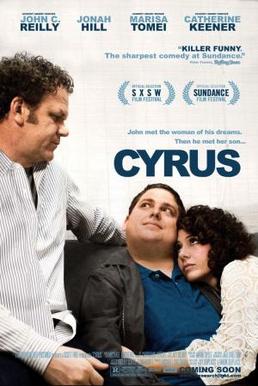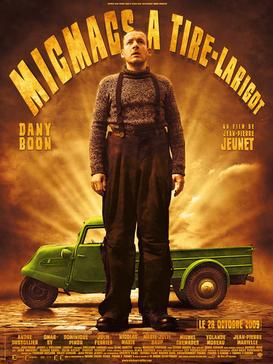
Scott Pilgrim vs. the World (Wright, 2010)
In the past few years the Hollywood interest in comic book films has continued to crescendo with huge critical and financial successes such as the Spiderman, Iron Man, and Batman franchises. Aside from being overly saturated by testosterone, such hits have lined summers with blockbuster after blockbuster by sticking to a generic story telling structure of origin stories and world threatening conflict to provide enough action to coerce the adrenaline to come out and frolic. But top tier names are only so plentiful, so the surge in comic book popularity led to various graphic novels getting translations to the silver screen in the form of Watchmen, Sin City, and most recently Kick-Ass. These films focus heavily on action, but the visual flourishes in these films are much more prominent and distinctly separate them form the larger hyped films. So when a director whose claim to fame is his astounding ability to deftly blend genres tackles a film that asks him to combine the entertainment of high action sequences with the charm of a niche graphic novel when I reach a killscreen am I going to want to press continue?
Edgar Wright's follow up to Hot Fuzz details the life of titular protagonist Scott Pilgrim as he literally fights for the love of Ramona Flowers whilst seeking success with his band Sex Bob-Omb. So, naturally, the film is an action film, correct? Well, not exactly. Edgar Wright makes comedies, and Scott Pilgrim vs. the World is stuffed to the brim with more big laughs and subtle touches than I have had the pleasure of seeing since Superbad. But the film, it's certainly not a comedy, as the central relationship is far too much of a driving force. So essentially Scott Pilgrim is a video game meets a graphic novel makes love to a comedy spawns a romance and genetically engineers an action film, donning a musical thong. So I can naturally expect this film to have tonal inconsistencies, but Wright avoids this incredibly common pitfall by keeping the film moving at such a rapid pace, and really packing each and every frame with such a completely realized vision that it never has time to stray from the mood set from the opening Universal logo.
What I notice in this film, and even in Wright's former films, is exactly how much care is placed in every shot. Each use of pixelation, each blur, every censor, all the logos and the outfits, they all establish the world so perfectly. The visual aesthetic works wonderfully with the editing and other visual flairs of the film which include segments that play out at graphic novels and other forms of visual media. But what stands out the most on a visual level is the jaw dropping fight sequences. Each one plays out so differently and allows Wright to showcase a range of film making techniques and styles that synthesize action with comedy and even with music when the script calls for more flashy fights. The more time I have to sit with these sequences and really consider how visually intensive the scenes are, while still maintaining a delightfully charming low budget look.
And of course there's the soundtrack. Anchored by Beck and Broken Social Scene serving a stand ins for Sex Bob-Omb and Crash and the Boys, respectively, the variety of sounds are an absolute delight while still feeling natural and unforced in the context of the film. But not only do the songs serve the overall tone of the film, they also enhance the action, and they enhance the comedy. Rarely have songs ever felt so integrally tied to a film that is not a musical. I suppose the easy comparison to make is to the score in I Am Love, despite the shift in intensity and purpose, the film is elevated incredibly by the use of a very specific type of music employed in a simply masterful manner. But even above the soundtrack is the film's score, a string of wonderful compositions littered with signature video game sounds that play lightly in the background of many scenes. These effect creates such a wonderfully engulfing mood that I found myself completely sucked in every moment of this ride.
However, despite my gushing so far the film is certainly not without its flaws. While the film runs at a neat, and incredibly quick, two hours, I did get the feeling that a complete story is not entirely present. Now I am aware that the film is based on pre-existing source material, so I was able to fill in a few of the holes, but even with this background knowledge I did not find myself incredibly invested in all of the plot lines. Wright juggles so many characters that I was not surprised to see some catch the short end of the stick, but the Kim character is treated as such a removed character that one of the emotional pay offs does not work much at all. Perhaps having her not be important is meant to show the distance between her and Scott though, which does add up but still does not make the plot nearly as satisfying as many of the other threads running throughout the film. The movie needs room to breathe, to completely bring life to all of these characters, and to better reinforce the intensity of the central romance. These aspects are not the strongest, but one of the strengths in O'Malley's series of graphic novels is in the ability to insert quietly beautiful meditations on love amidst the action, and the film does capture the occasionally sickeningly, yet always infectious, feelings of human connection near perfectly.
Another aspect of the comic that is captured in the film, and can stand alone without reading any of the graphic novels, is the character of Scott Pilgrim. Scott is meant to be sympathetic, but we are also asked to realize that Scott is both ignorant to the world around him and as a result kind of a self centered dick. Cera brings this sense to the character wonderfully, combined of course with Wright's inventive way of conveying to the audience how exactly Scott's mind if working. As a viewer I do not always condone Scott's actions, but I can understand them, and the commentary on the illogical human mind is wonderfully woven in to the film, as well as the idea of a society that promotes such behavior. Of course these qualities all rely on the right type of delivery and Michael Cera further cements his status as the best comedic actor of all time by perfectly delivering Scott's lines and conveying his disconnect with his environment. For much of the film Cera does stick with his comfort zone, and the film does really benefit from him doing so, but he does also have big scenes in the action sequences and he further proves his ability to be legitimate 'actor,' depending on one's definition of the art form. Scott is not the drastic change that the Dillinger character is in Youth in Revolt, but not only is he in top form in this film, his ability to work with the fight choreography, both on the ass kicking and ass kicked ends, is simply stunning and further sells what are likely the most enjoyable action sequences I have ever seen.
The film's diverse cast also boasts a ton of other talented actors, but the one that practically steals the show is Kieran Culkin. He impressed me in Lymelife, though I was certainly not prepared for simply how excellent he would be in the role of Wallace Wells, Scott's roommate. He floats through scenes with such poise and precision, delivering his dialogue with such sincerity and charm. His performance is truly a sight to behold. Jason Schwartzman is also excellent doing Jason Schwartzman, and actually all members of the League of Evil Exes play their character uniquely and wonderfully. A few of the secondary character in particular were a huge hit with my audience as well. The females in the film are enjoyable as well, but very few are given very much to do. I wish that more time could have been spent with Envy Adams, not only because Brie Larson is mighty pretty but also because her The Clash at Demonhead performance is one of the best tracks in the film, and the sequence between her and Scott has the potential to be even more emotionally resonant. The stand out of the females is found in the form of Ellen Wong as Knives Chau, a heartbreakingly impressionable Scott super fan girl who exists as a wonderfully satirical spin on Caucasian perspective. Many of the supporting characters play one note roles, but each and every one plays that note pitch perfect.
Coming out of the film I was unsure of exactly how much value I found in Scott Pilgrim vs. the World, but as I started writing about the film I not only learned that I enjoyed the film far more than I had initially imagined (and I am certainly looking forward to seeing it again upon its theatrical release) but the film is also considerably more admirable than I had considered. The startlingly inventive construction and editing are enough to make Wright's latest film a truly uniquely enjoyable experience, but the film's ability to capture such raw moments of beauty in a minefield of laughs cements Wright's status as one of my favorite filmmakers, despite the abysmal Shaun of the Dead, and - finally - left me completely satisfied after seeing a comedy...as much as the label is applicable. At its worst Scott Pilgrim is a masterclass of filmmaking, but this film exists, on practically every level, as a film constructed for me to love. Scott Pilgrim vs. the World is imaginative, inventive, and a film that truly exists as a representation of the time in which it spawned while still holding enough timeless qualities to make it one of the year's finest.
Comments are encouraged and, for anyone with a literary mind, I encourage checking out my poetry blog filled with all original works for your reading pleasure.
Also I am on the old Twitter thing so I guess you can follow me at twitter.com/FLYmeatwad.




